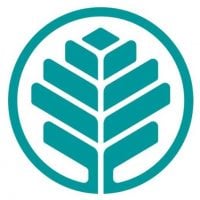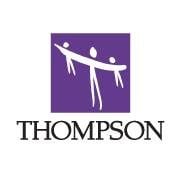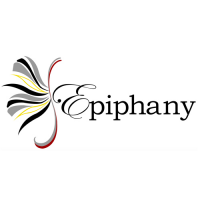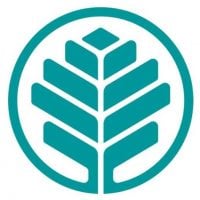Friendship Home
Drug Rehab Center in Monroe, North Carolina
- Opioid Addiction
- Dual Diagnosis
- Drug Addiction
- Alcoholism
Friendship Home provides addiction treatment services in Monroe, North Carolina, with a range of evidence-based approaches including therapies and long-term support of more than 30 days.
Multiple patients have reported Friendship Home as permanently closed.
Research other rehabs in Monroe, North Carolina, or get help finding an open facility.
Our experts will find you an alternative facility.
(888) 674-0062 24/7 Free, Confidential, Expert HotlineAbout Friendship Home in North Carolina
Friendship Home in Monroe, North Carolina is a treatment facility that offers comprehensive services to individuals seeking to overcome alcoholism, dual diagnosis, opioid addiction, and drug addiction. Their facility is designed to support people in their journey to sobriety by providing a safe and nurturing environment. With a focus on personalized care, Friendship Home tailors treatment plans to meet the unique needs of each individual, ensuring that they receive the most appropriate care and support.
Friendship Home provides a range of services and treatment methods to address addiction and substance abuse issues. Through their aftercare support program, individuals receive ongoing support and guidance even after completing the initial treatment program. The facility also offers different levels of care, allowing individuals to progress through treatment at their own pace. Friendship Home utilizes evidence-based treatment approaches, combining therapy, counseling, and support groups to help individuals understand the root causes of their addiction and develop healthy coping mechanisms. In addition, they provide interventions for dual diagnosis cases, recognizing the importance of addressing mental health issues alongside addiction.
Genders
Ages
Modality
Additional
Conditions and Issues Treated
With so many people addicted to opioids, we need to help those who want to quit. The cycle begins when opioid addicts take opioids for a painful injury. When someone starts taking their medication differently or in excess, it means they’re addicted and at risk of overdosing.
In , detoxing from these types of treatments is the most effective way to beat this. Most facilities begin with medical assistance and then provide counseling services; rehabilitation follows after successful treatment.
Levels of Care Offered
This center offers a variety of custom treatment tailored to individual recovery. Currently available are Aftercare Support, Drug Rehab, with additional therapies available as listed below.
The accomplishment of completing a drug or alcohol treatment program is just the first step. Once that is complete, aftercare support comes into play. This includes helping people adjust to life without substances outside of guidelines with assistance like getting sober living accommodations and career counseling and AA/NA programs for those who are struggling between sobriety or want continued help in maintaining it once they have completed their initial rehabilitation at an addiction facility.
Aftercare comprises services that help recovering addicts readjust to normal day-to-day activities while working on specific issues. These problems include psychiatric issues, family problems caused by substance abuse, continuing education pursuits if desired during rehab, etc. These can last up to one year+ depending on what’s needed most urgently upon completion of earlier stages.
Therapies & Programs
Different people react differently to various treatment options. Some drug rehabilitation centers offer individualized treatment that caters to the specific needs of a drug addict. The best treatment option varies on an individual depending on the type of drug abused, life history, medical condition of the person, social circumstances, and the environment they live in now.
When a person enters drug rehab, they usually have anti-drug associations such as withdrawal symptoms, stress, cravings, etc. The first step of drug rehab is to detoxify the body from any residual substances in it. Drug rehabilitation centers usually employ trained medical professionals to help in this process. Usually, the initial detoxification lasts for five days, where the person is monitored under close supervision.
Couples therapy is a treatment method used to help couples in which at least one member of the couple has a drug addiction. The treatment is designed to help the couple strengthen their relationship to minimize the effects of drug addiction on their lives and promote healthy communication between them.
Couples therapy can be used whether the addicted partner is using drugs or in recovery. It helps the couple create healthy communication and coping skills to minimize the problem-solving abilities of one partner, which can then be directed at solving issues related to their addiction. It also helps couples address problems that may be related to drug addiction. Couples therapy can help couples feel like a team and not feel like their partner is the problem.
Couples therapy is very challenging for both the drug addict and their partner. It requires an intense commitment between the two individuals to participate in the sessions and the homework assigned between sessions.
An additional benefit of couples therapy is that it can help make other types of treatment, such as 12-step programs, more effective.
Family therapy sessions typically involve the addict and their family members. During these sessions, a therapist will work with everyone involved to help them understand addiction and find healthy ways of coping without substance abuse.
Some addicts might feel embarrassed about their substance abuse problems. By encouraging family members to attend these sessions, therapists can show addicts that they’re not alone in dealing with addiction. Therapists can also work with family members to help them understand addiction and learn how to offer support and encouragement to their loved one as they deal with substance abuse issues.
Attending group therapy at Friendship Home in , is a useful way for those seeking sobriety to realize they aren’t the only one going through it.
This is when a group of people on different recovery phases get together and talk about what they’re going through, their triggers, successes, and failures. This can include alternative types of therapies too! Group therapy may occur on an outpatient or inpatient basis with groups that have no pre-existing relationships outside the session, unlike support groups where everyone already knows each other beforehand.
Additional Details
Specifics, location, and helpful extra information.
Monroe, North Carolina 28110 Phone Number(704) 289-4144 Meta DetailsUpdated November 25, 2023
Staff Verified
Friendship Home Patient Reviews
There are no reviews yet. Be the first one to write one.
Monroe, North Carolina Addiction Information
North Carolina ranks 29th in the nation for overall substance abuse. Many of the drugs abused in the state are illicit, and many of these are opioids. Prescription opioids are readily available due to the high rates of medical workers prescribing them. The number of prescriptions has increased tenfold since the 1980's. Opioid overdoses are the most common type of death in North Carolina.
The drug addiction problem in Monroe, North Carolina, is severe. Drug addiction and abuse rates in Monroe, NC, are increasing. In 2015, 1,077 people died from overdoses - a rate of 14.4 deaths per 100,000 people. There are many different types of addiction treatment available in Monroe, and people can find the best programs. 12-step programs are popular among those who are recovering from addiction.
Treatment in Nearby Cities
- Albemarle, NC (30.0 mi.)
- Spring Lake, NC (88.7 mi.)
- Elizabethtown, NC (112.2 mi.)
- Pineville, NC (21.3 mi.)
- Midway Park, NC (181.9 mi.)
Centers near Friendship Home




The facility name, logo and brand are the property and registered trademarks of Friendship Home, and are being used for identification and informational purposes only. Use of these names, logos and brands shall not imply endorsement. RehabNow.org is not affiliated with or sponsored by Friendship Home.


